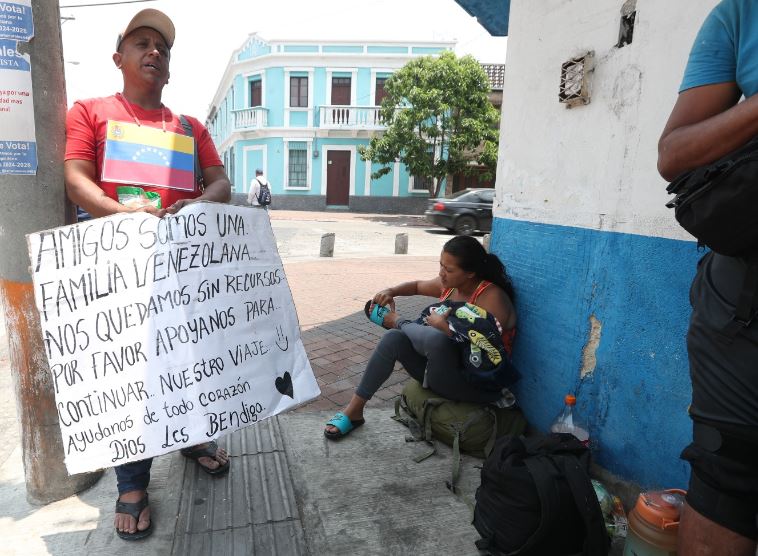Global Courant 2023-05-11 06:25:14
With the completion of Title 42 in the United States, regional migrant processing centers will begin to operate in Guatemala and Colombia, an effort to reduce the arrival of migrants at the southern border of the US; however, some believe that this is a phenomenon that will not disappear if the causes are not solved, in addition to the little information that exists.
This Thursday, May 11, Title 42 ends and Title 8 enters into force, which indicates that migrants will face more serious consequences for crossing the border illegally.
People who cross the border without first applying for asylum in a third country will be removed and would not be eligible to do so in the United States; while US authorities insist that the way to apply for immigration processes will be through an appointment through the CBP One application.
For now, Guatemala and Colombia will be the countries where the regional processing centers will be implemented so that migrants can request asylum, but there is uncertainty as to how they will work due to the lack of information.
“What will happen to those who do not qualify? There will be thousands,” warned the director of the Casa del Migrante in zone 1 of the Guatemalan capital, Francisco Pellizzari, on Wednesday, May 10.
He affirmed that there is a lack of information about the centers that will be implemented in Guatemala and warned that despite this, irregular migration will continue until the root causes are worked on.
In the first four months of 2023, this Casa del Migrante counted more than 8,000 migrants attended. “It is even a greater number than the migrant caravans,” said Pellizzari, recalling the mobilizations prior to the pandemic between 2018 and 2019.
He added that it will be a figure that will increase despite the measures that are being sought to be implemented in Guatemala and the United States.
how they will work
While the Ministry of Foreign Affairs has limited itself to informing that these places will not be refugee reception spaces, nor shelters and will seek to manage family reunification, refuge and asylum processes, as well as temporary work visas.
Pellizzari added that migrants have many doubts and a lack of information, but despite the fact that Title 42 expires, they continue on their way, since they invested for the journey and some come from Colombia and Venezuela.
He indicated that as Casa del Migrante he also doubts what will happen to migrants who do not apply for asylum or those who do not know how to apply.
“What will happen to those who apply and then have to wait for the answer, where are they going to wait for the answer. There is a lot of uncertainty in what the application of these measures is, ”he said.
He said that the authorization of this center in Guatemala will not increase the migratory flow, since possibly the migrants will continue their irregular path, although the phenomenon of expulsion continues.
He noted that it is not known what will happen after May 11 when Title 42 expires.
Also read: What is Title 42 of the United States and what is Title 8 that would replace it
He added that we must refocus on the good of the people, and not on partisan political interests, since the US is interested in preparing an upcoming political campaign and migration becomes a scapegoat to justify some measures to get votes.
Although the United States Government promulgated a new rule on Wednesday that restricts access to asylum on the border with Mexico and replaces Title 42, a rule of the Trump administration that allowed the immediate return of migrants under cover of a possible spread of the coronavirus .
more countries
The US Secretary of State, Antony Blinken, raised this Wednesday the possibility that other countries join the agreement with Spain and Canada to welcome Latin American migrants, although he did not detail negotiations in this regard with any specific country.
This is how the leader of US diplomacy expressed himself during a press conference with the Spanish Minister of Foreign Affairs, José Manuel Albares, after holding a meeting in Washington.
“We are very happy and grateful that Spain is participating (in the agreement). Canada is also participating and possibly other countries could do so,” Blinken said when asked if other European nations would join the plan, EFE reported.








